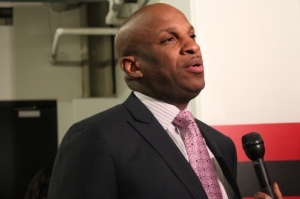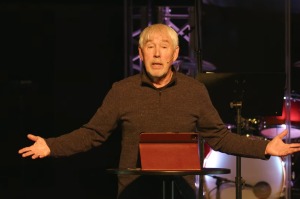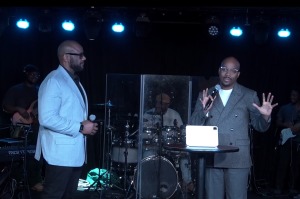Chen Guangcheng Asks Obama Administration to Release Agreement Records With China
In a congressional hearing on Tuesday, blind human rights activist Chen Guangcheng requested Congress to convince the Obama administration to release diplomatic records containing the agreements reached between the U.S. and China last May, which facilitated his release from the country.
Chen reportedly wants the agreements released because the U.S. government told him in May that Chinese officials would promise, in writing, not to harm his relatives remaining in China, but several of his family members have reportedly been harassed and beaten by government officials.
For example, Chen's nephew, Chen Kegui, was arrested and sentenced to 39 months in prison for allegedly injuring government officials when they stormed his home looking for Chen in April 2012, but Chen maintains that his nephew was practicing self-defense.
Chen added that local authorities have intimidated his nephew and other members of his family, and have threatened his nephew with life imprisonment if he appeals his assault charge.
"We cannot continue to tolerate the Chinese communist authorities continuing to go back on their word and deceiving the international community at will," Chen said in a prepared testimony for the Tuesday hearing titled "Chen Guangcheng and Gao Zhisheng: Human Rights in China," held on behalf of the House Committee on Foreign Affairs Subcommittee on Africa, Global Health, Global Human Rights.
In his prepared testimony, Chen went on to question how the international community can trust China when it fails to uphold promises regarding its citizens' safety.
"When the Chinese Communist Central Party Committee can act like this in breaking its promises to me, to the United States and to the whole world, and when it can willfully break agreements in a case that has attracted the world's attention, how can we expect it to improve the human rights situation in other areas and to take up its international responsibilities and obligations?" Chen questioned.
Chen went on to ask the subcommittee to obtain and publish "the written and oral diplomatic agreements between China and the United States with regard to this incident of mine," including a letter the human rights activist wrote to former Chinese Premiere Wen Jiabao at the time of his escape, asking the leader to protect his family from harm.
In April 2012, former U.S. Secretary of State Hillary Clinton and U.S. officials helped broker a deal with China to allow Chen, who had been living at his home in Dongshigu Village under house arrest, to escape the country and travel to the U.S.
After long, intense and highly private negotiations, Chen arrived in New York City with his wife and two children on May 19, 2012.
Chen is a well-known human rights lawyer who, during his time in China, focused specifically on cases relating to women's rights and the poor, and subsequently drawing the ire of the communist Chinese government.
Chen, who has long been an advocate against China's One-Child Policy, was placed on house arrest in 2005 for filing a class action lawsuit against the government's One-Child mandate.
The self-taught human rights lawyer then suffered persecution from Chinese officials until his escape to the U.S. in 2012.
For the most part, Chen has stayed out of the media spotlight since his arrival in the U.S., and his Tuesday testimony marks his first personal appearance at a congressional hearing since his arrival in America.
Chen recently work with ChinaAid, a human rights group which helped in his escape, in producing a video condemning China's human rights record and One-Child policy.
"The human rights situation in China is, in fact, getting worse," Chen said in the video, adding that "in China, no one is safe."
"Citizens of the world with a conscience ought to respond by speaking out for justice," Chen added.
Another notable speaker at Tuesday's subcommittee meeting was Geng He, wife of imprisoned Christian human rights lawyer Gao Zhisheng, known for defending religious minorities in China.
According to The Washington Post, the State department has not immediately responded to Chen's request.
























